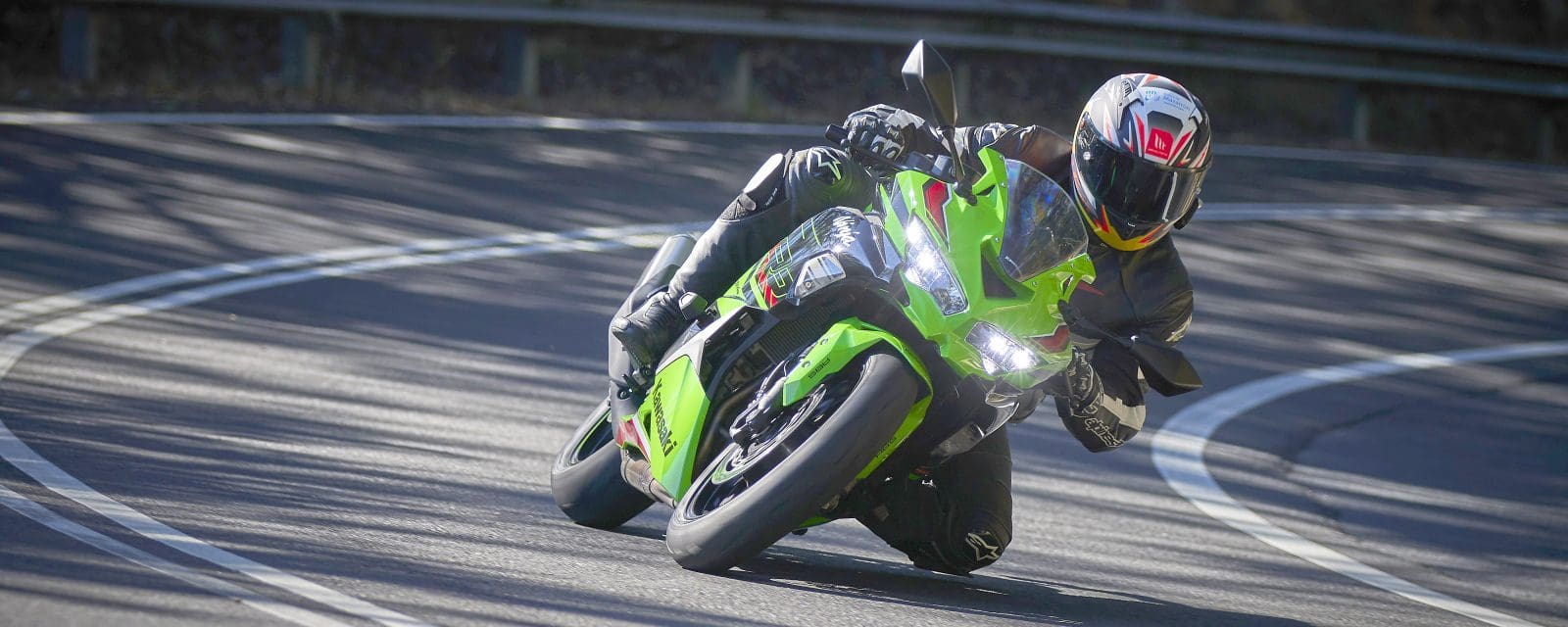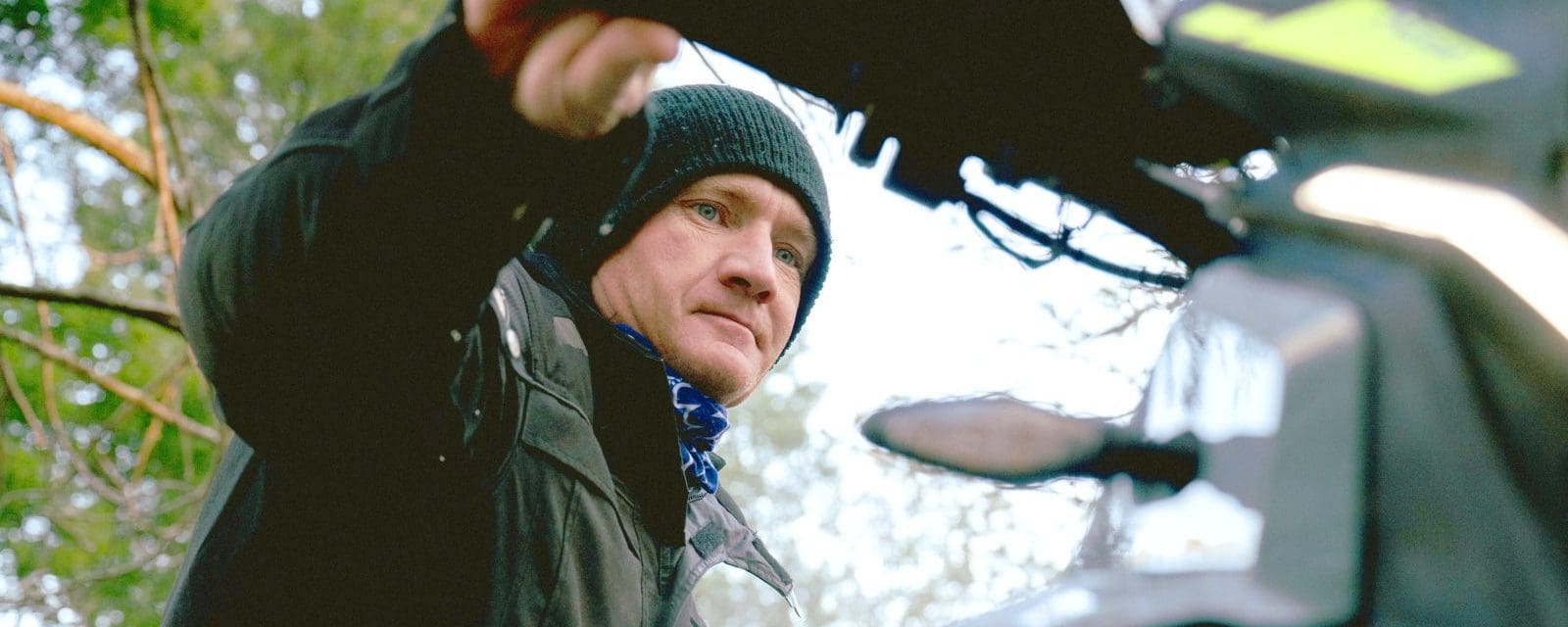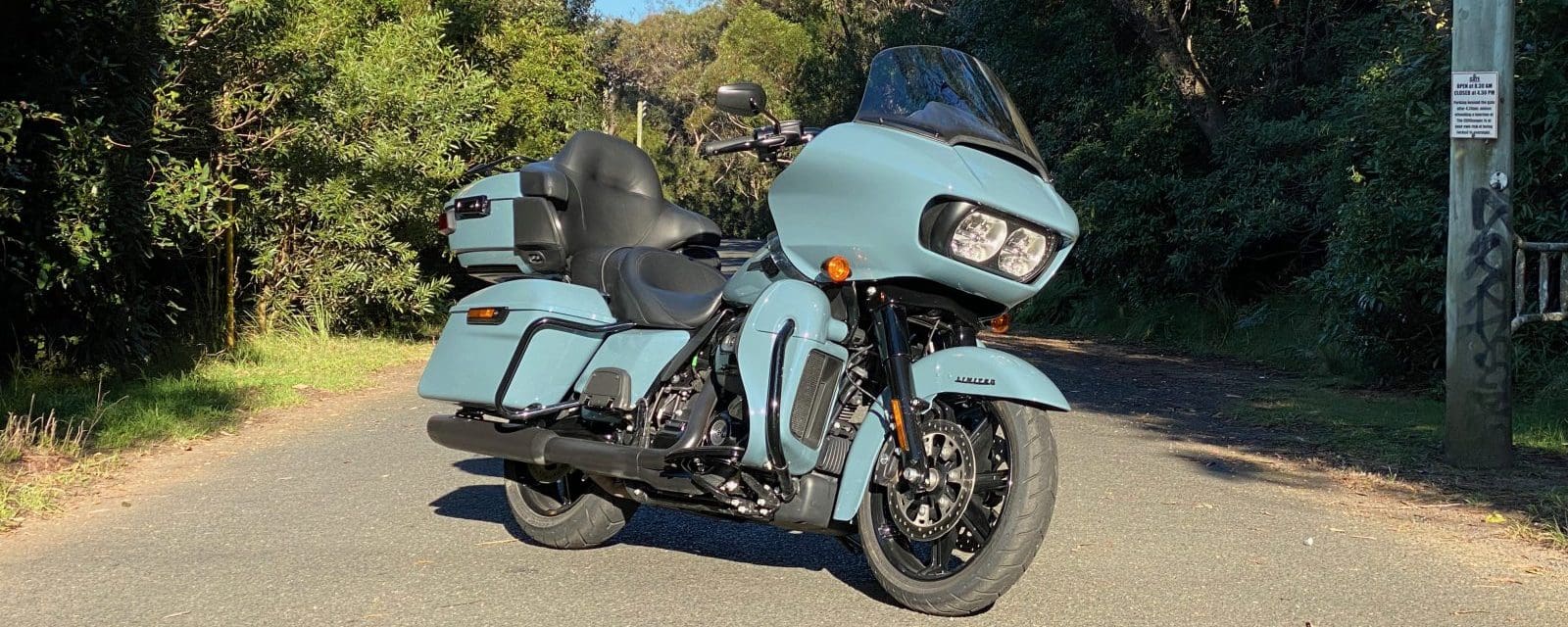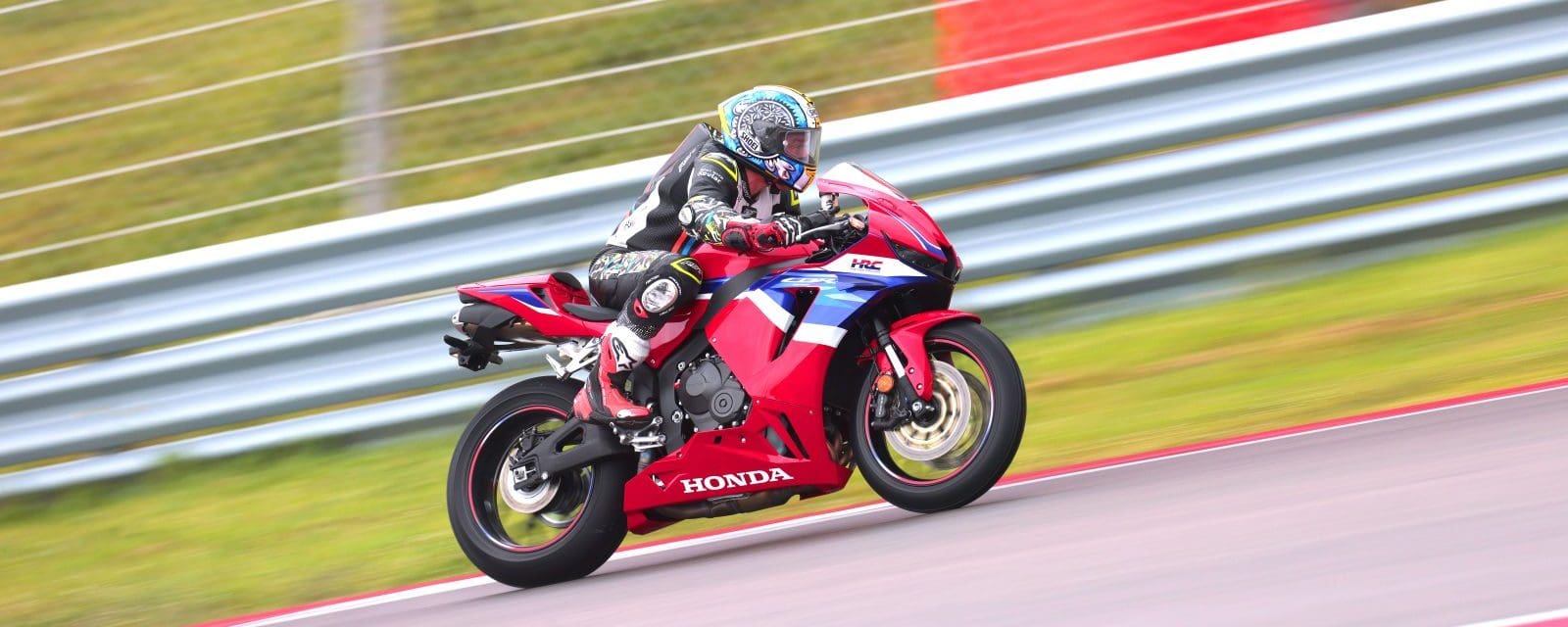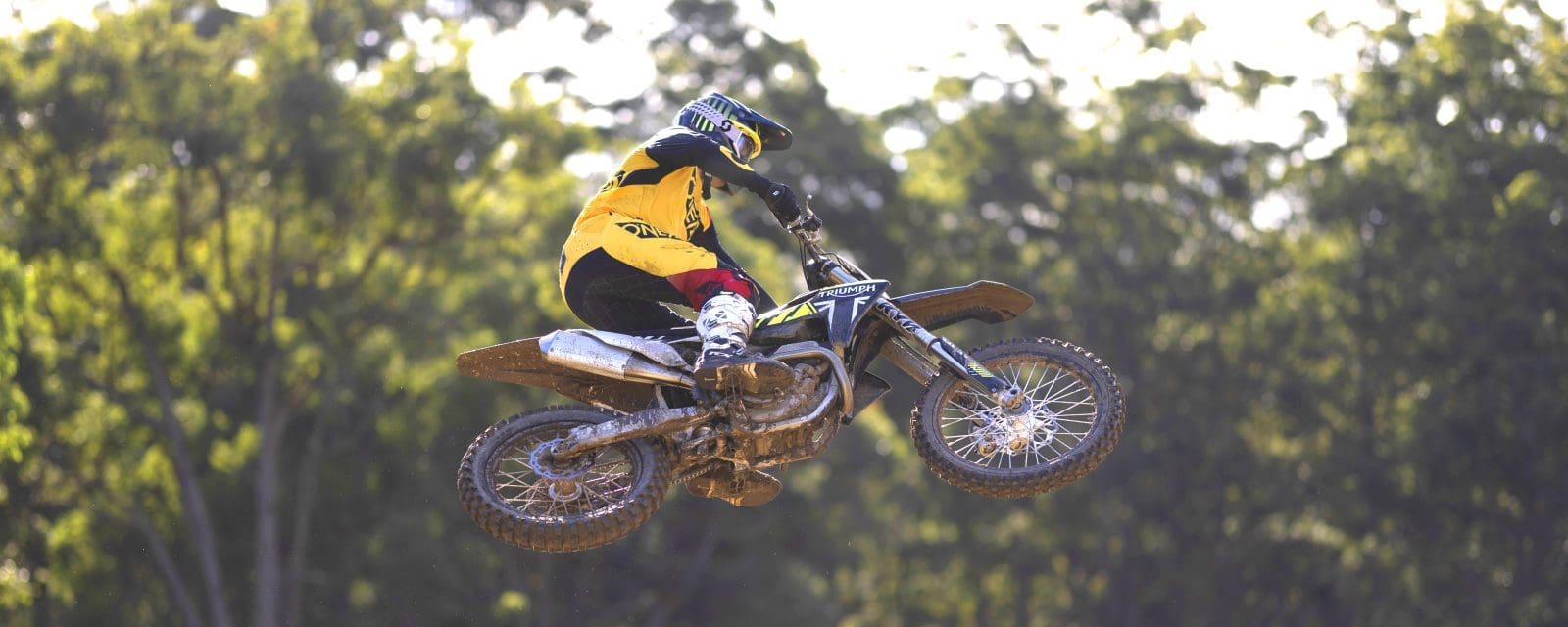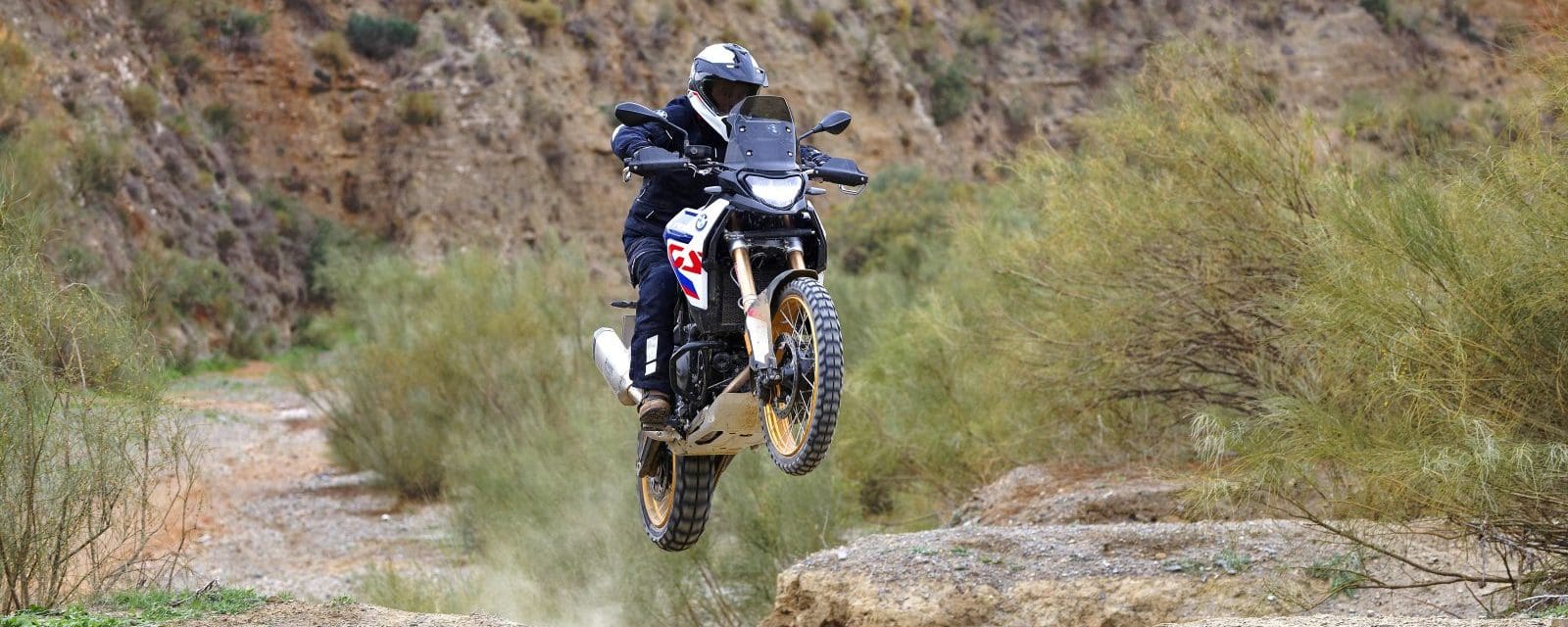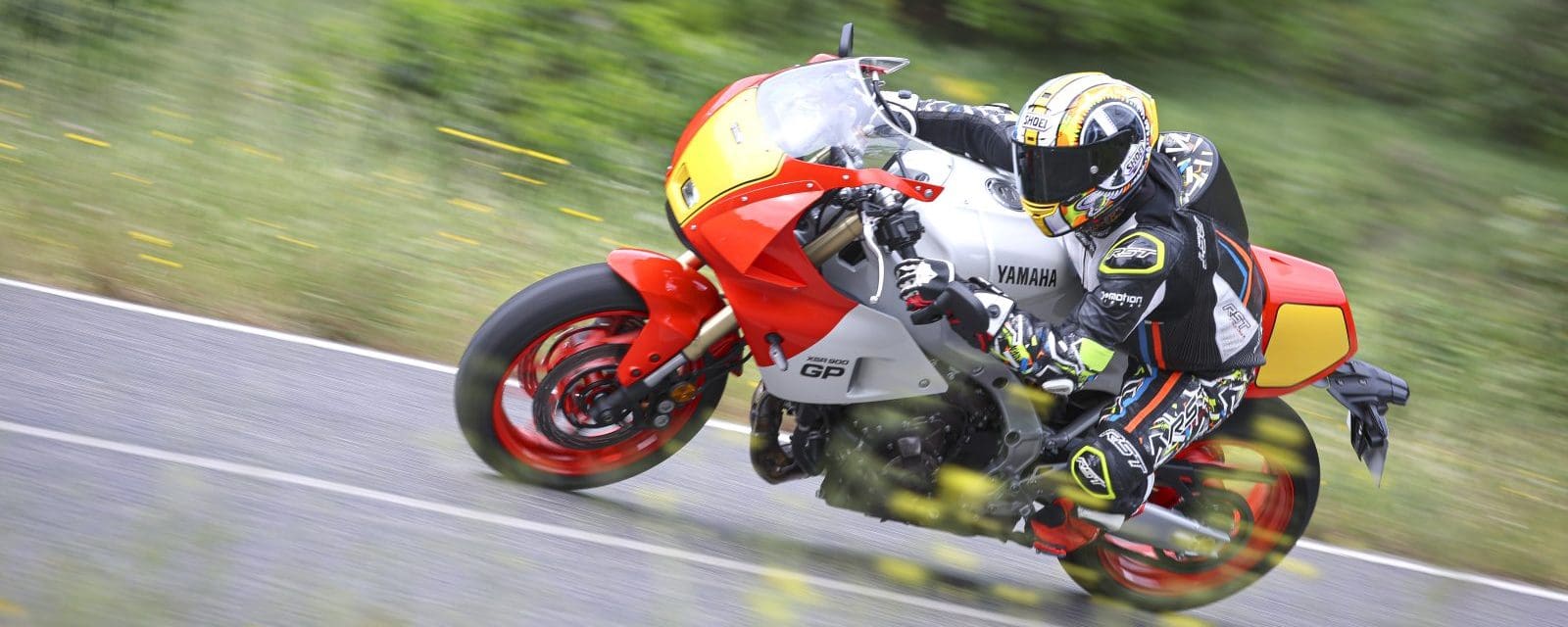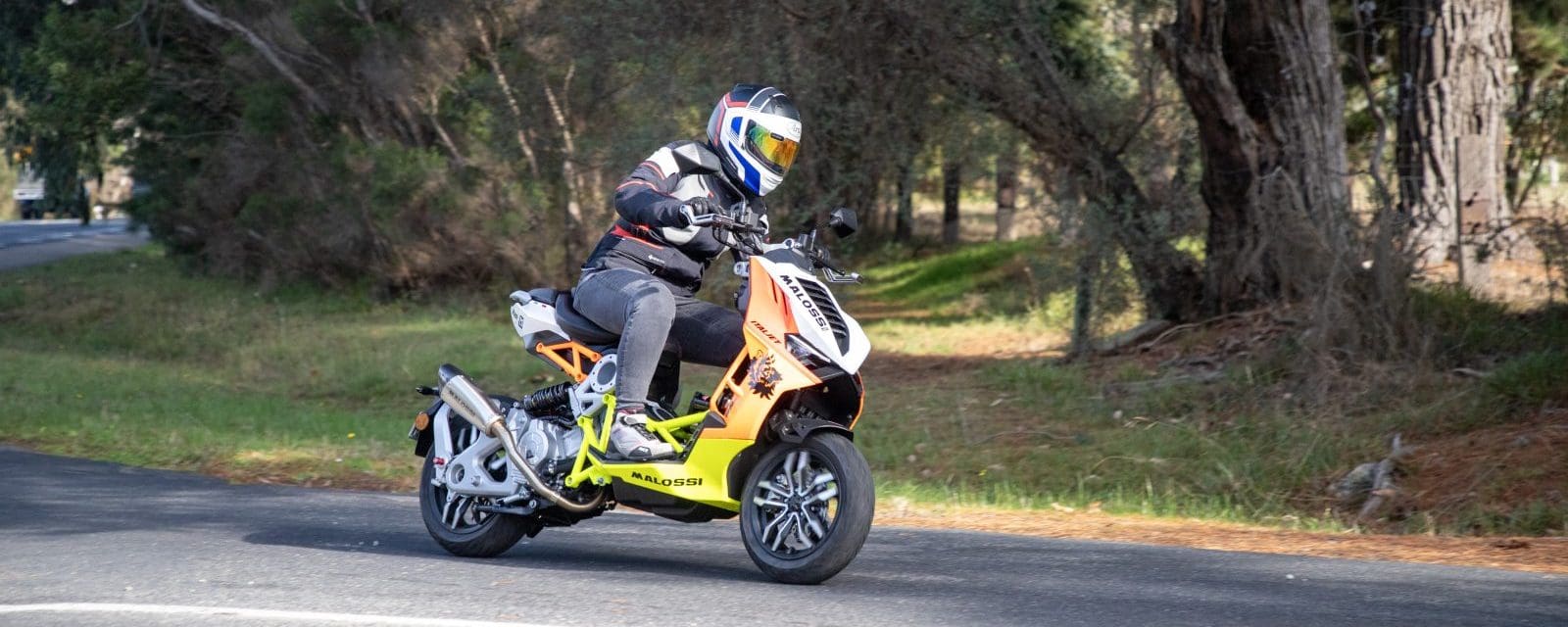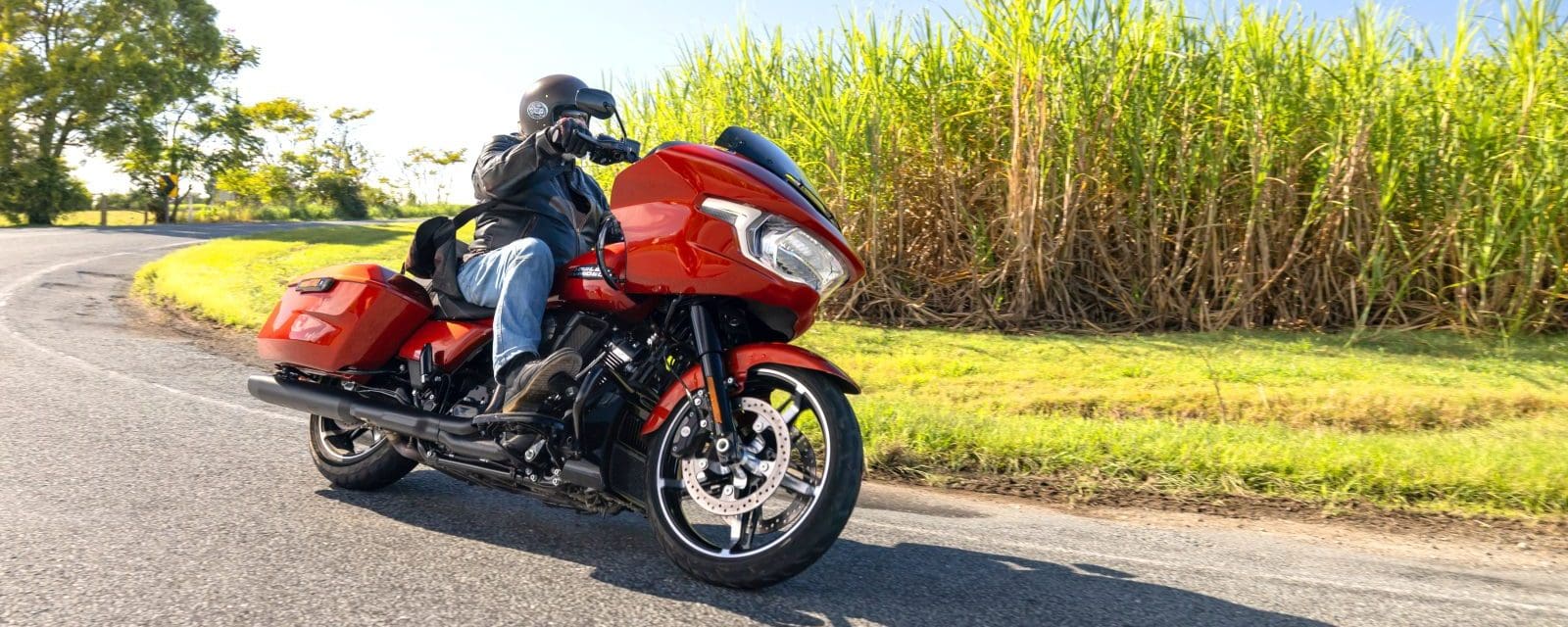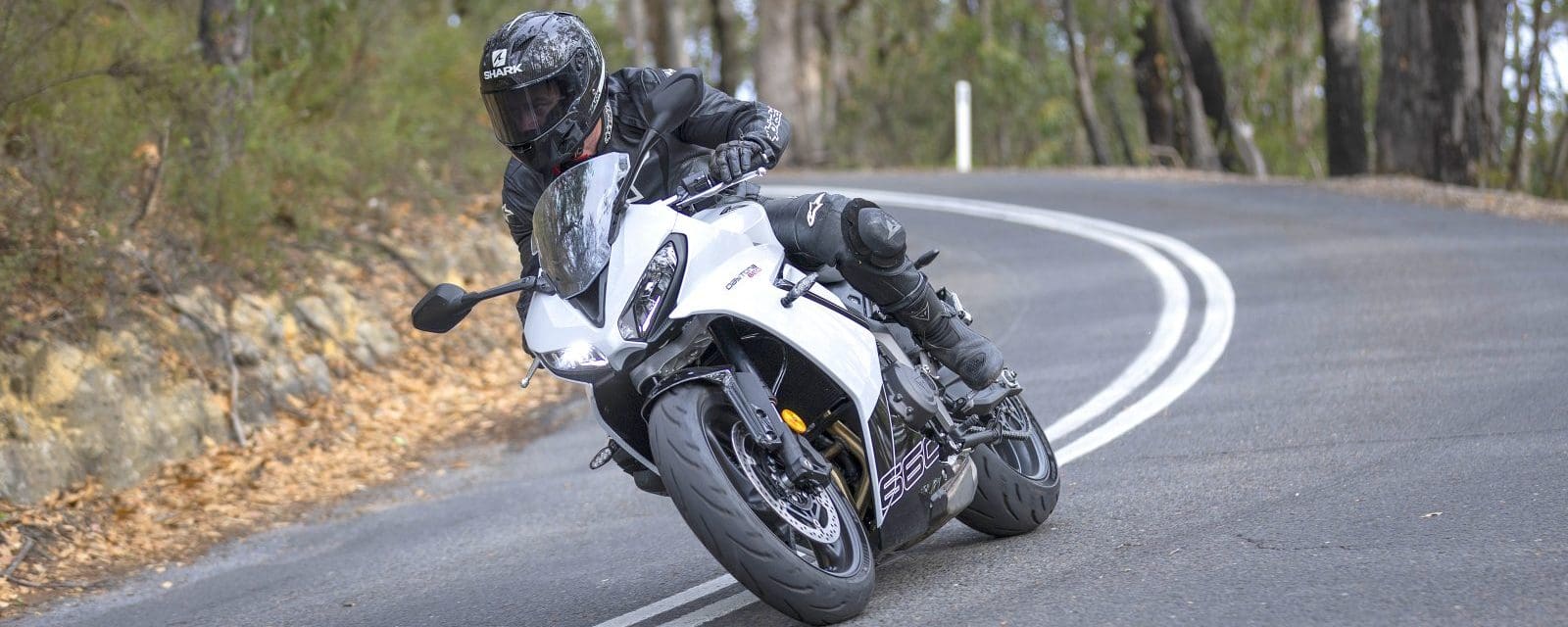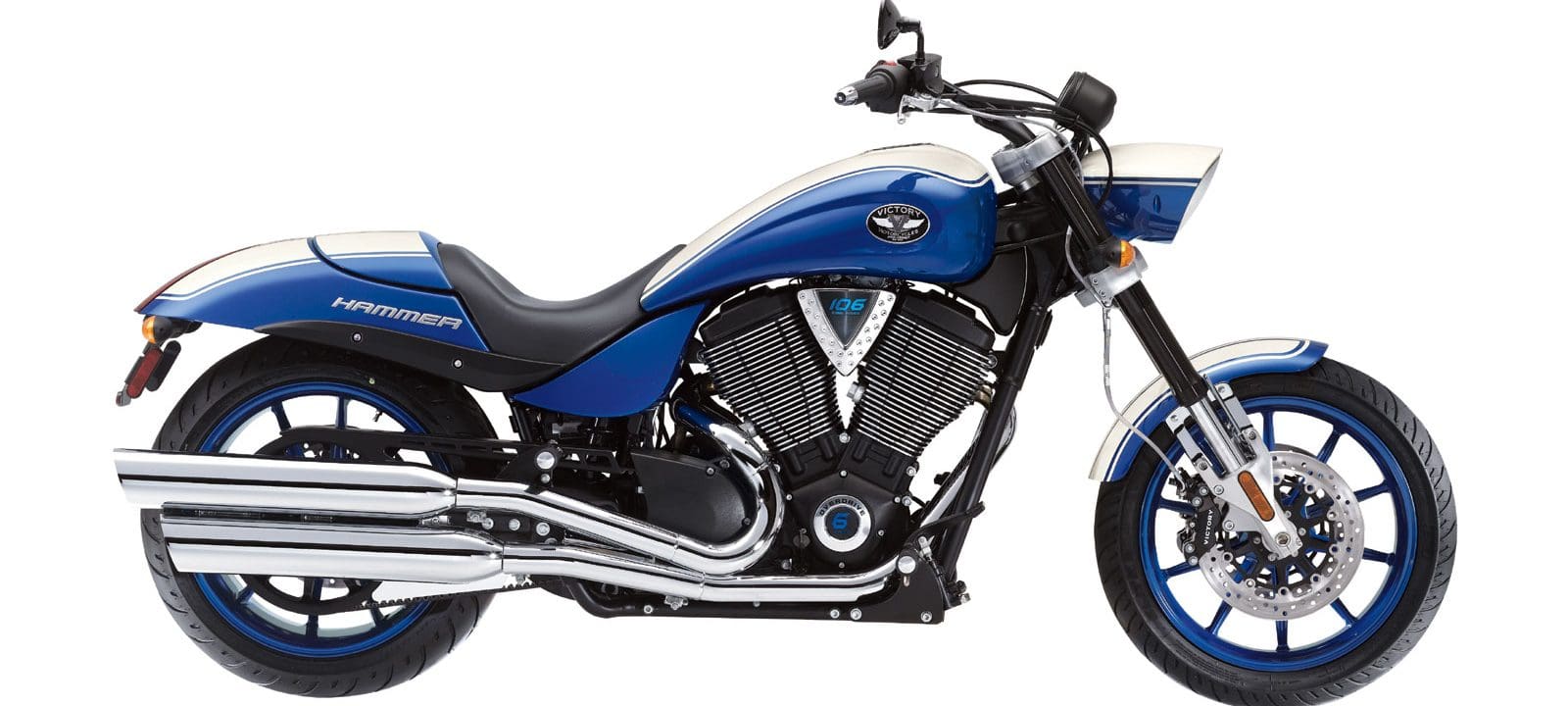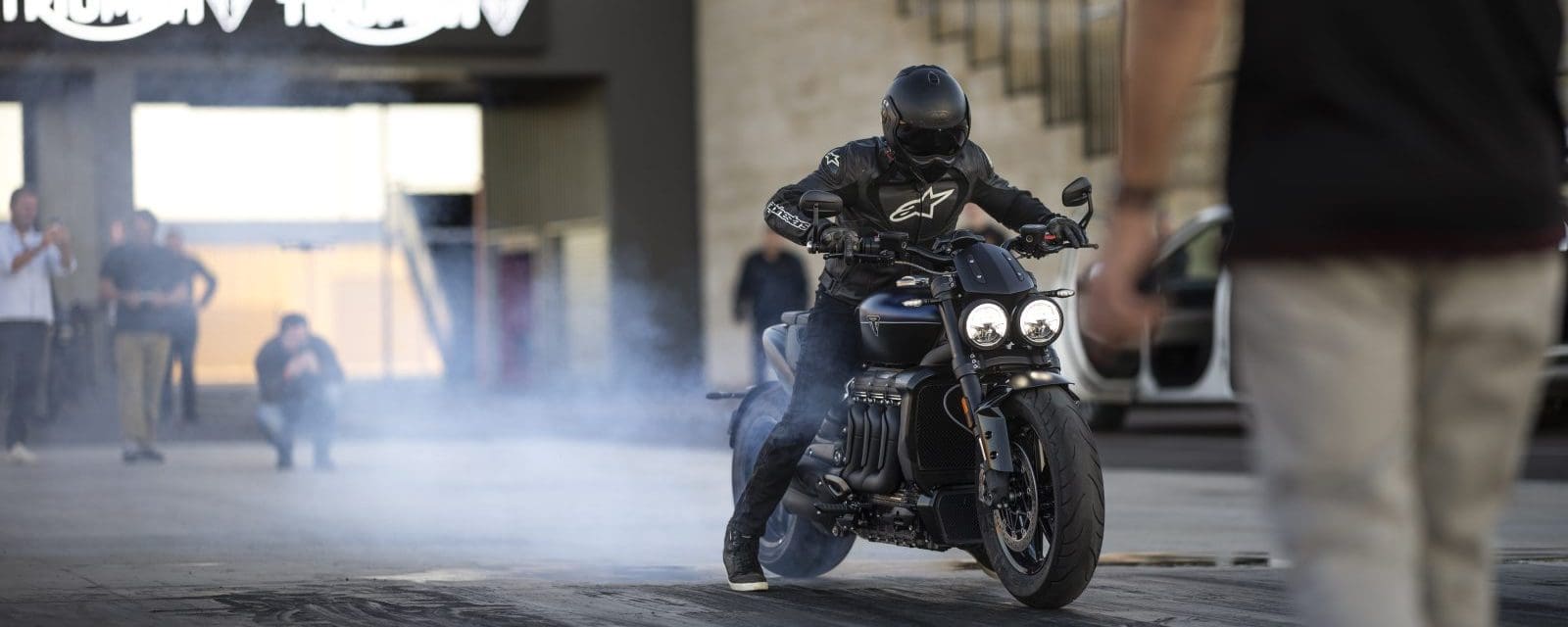If you think too much power is never enough, you obviously haven’t tasted a new Triumph Street Triple 765 RS. Sure, compared to litre-class machines, this midsize naked makes a relatively modest 96kW (128hp), but thanks to a broad spread of torque throughout the rev range, peaking at a handy 80Nm at 9500rpm, on the road it rarely feels as though it’s lacking in the grunt department.
Big claim, for sure, but I feel reasonably qualified to make it, doing so just a couple of weeks after testing way more potent litre-class (and above) nakedbikes, including the 147kW (197hp) Kawasaki Z H2, the 129kW (173hp) Aprilia Tuono Factory V4 and Triumph’s own 132kW (177hp) Speed Triple RS (see Vol 72 No 19 on sale now).
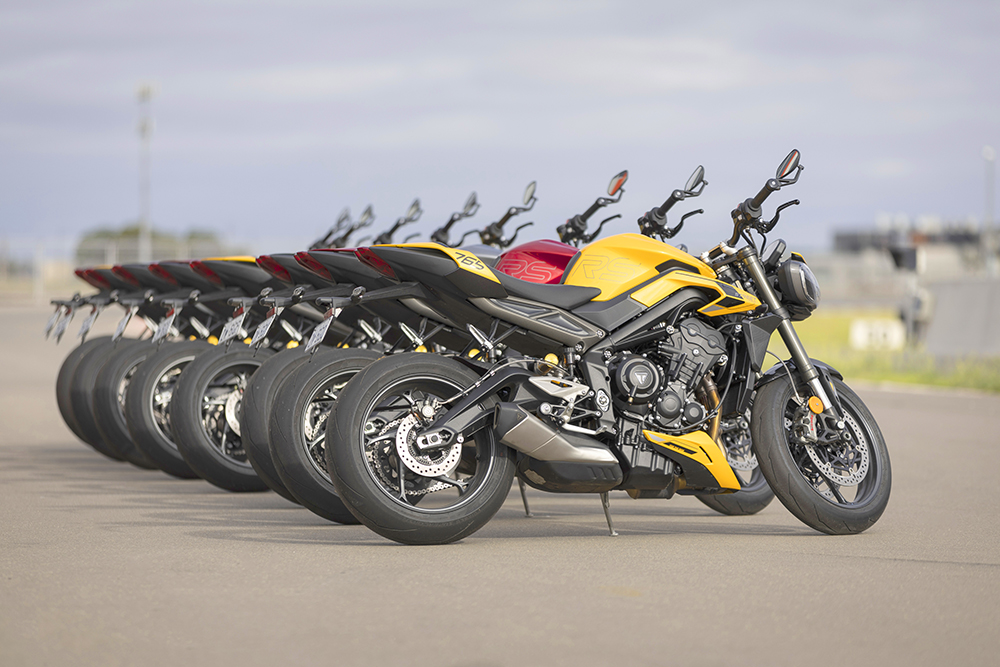
But seriously, how much power do you really need for road riding? Even if one day you found yourself on a quiet bit of tarmac in the middle of nowhere, and you thought to yourself, ‘Fuggit… let’s see what this thing’ll do!’, the Street Triple 765 RS will (hypothetically, of course) respond with a speed-limited 240km/h, and it’ll be no slouch in getting there. In fact, the only scenario in which I can envisage anyone wanting more power for the road is if they were chasing their mates on bigger, more powerful bikes… on long, open straights.
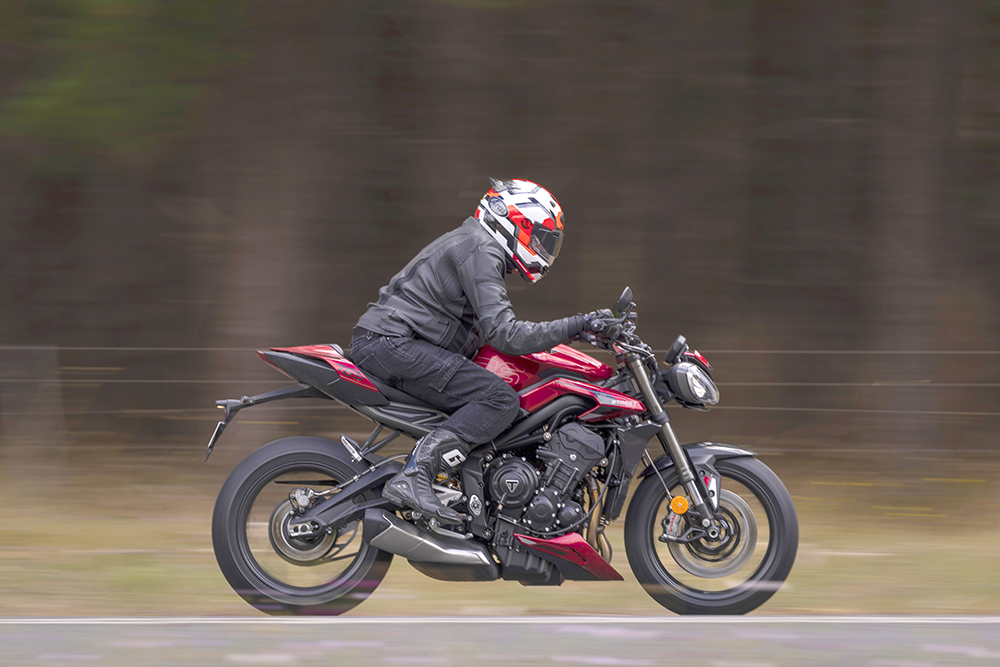
But then the Street Triple RS rider would likely claw back any lost ground as soon as the road started to tighten up. Corners? Yes please! The RS eats ’em for brekky.
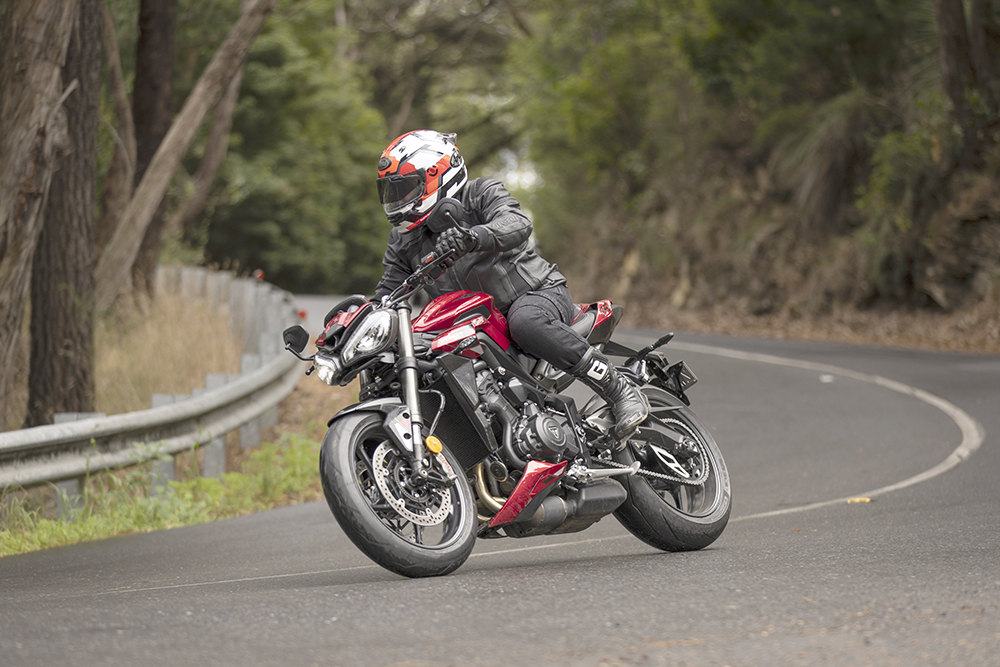
Triumph says there’s plenty of Moto2 tech in the latest 765cc triple, thanks to the company’s involvement in supplying engines for the intermediate world championship. Compared to the previous Street Triple, compression ratio is up 4.7 percent from 12.65:1 to 13.25:1, there are revised combustion chambers, new pistons and conrods, and new valves and camshafts. Power and torque are both up (5kW and 4Nm respectively) and, thanks partially to revised gearbox ratios resulting in lower overall gearing, so is engine responsiveness.
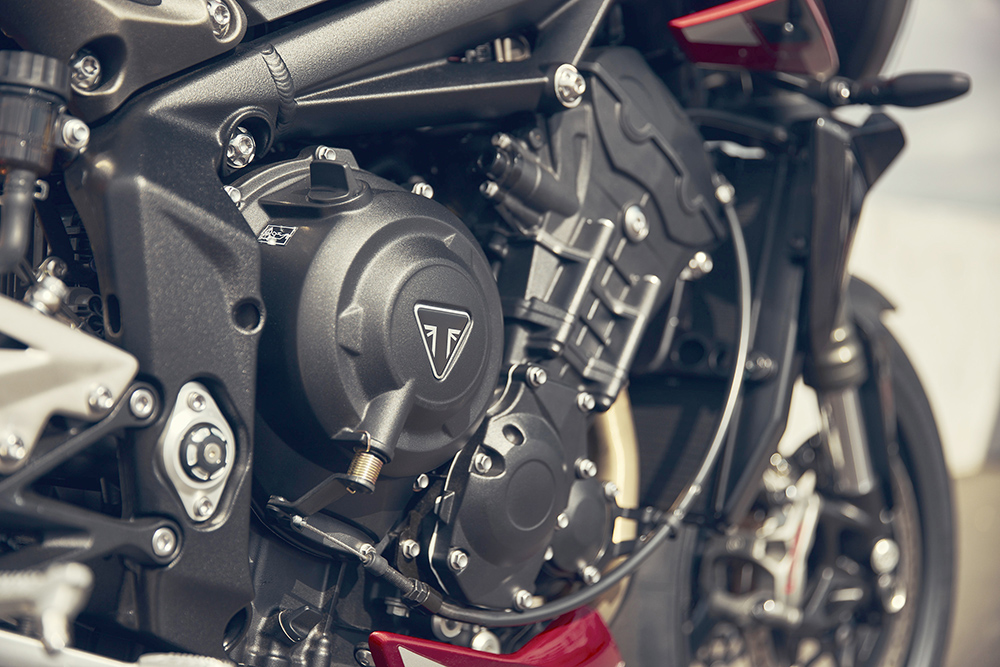
Triumph is keen to point out how racing improves the breed, not just when it comes to performance, but also reliability; it claims that the 765cc triple has been subjected to more than one million kilometres of racing in various categories around the world, including Moto2, IoM TT racing, various supersport categories and more. Not a bad testbed at all.
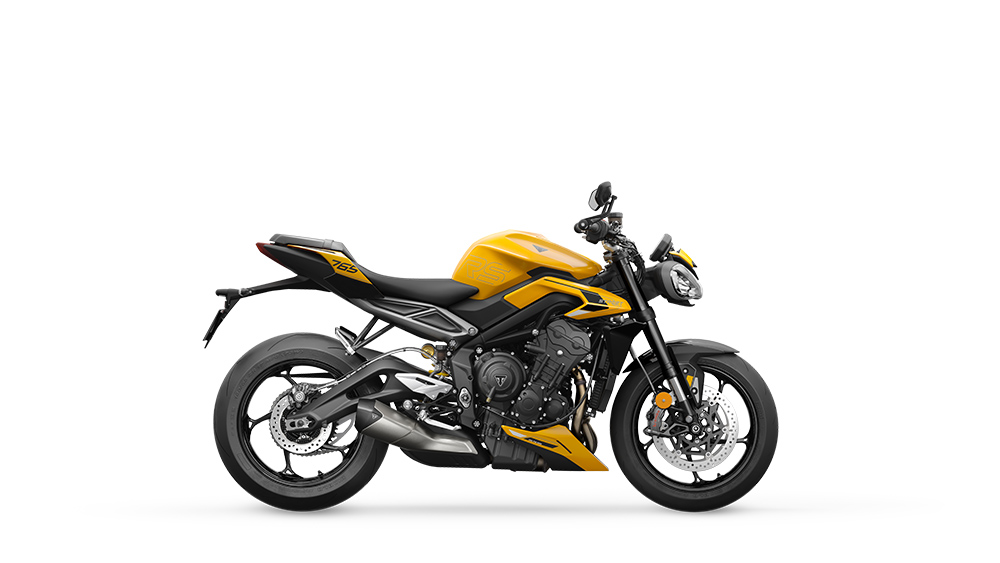
There’s little doubt the 765cc triple is a fantastic power unit with loads of character and a fabulous soundtrack, thanks to its distinctive induction roar and tasty exhaust note. As well as a potent top-end, it offers a meaty midrange that allows you to pull high gears from as low as 5000rpm, but it’s in the upper third of the rev range where things really start to happen. And thanks to the lower gearing, the tacho races towards redline with urgency once you crack the throttle wide open.
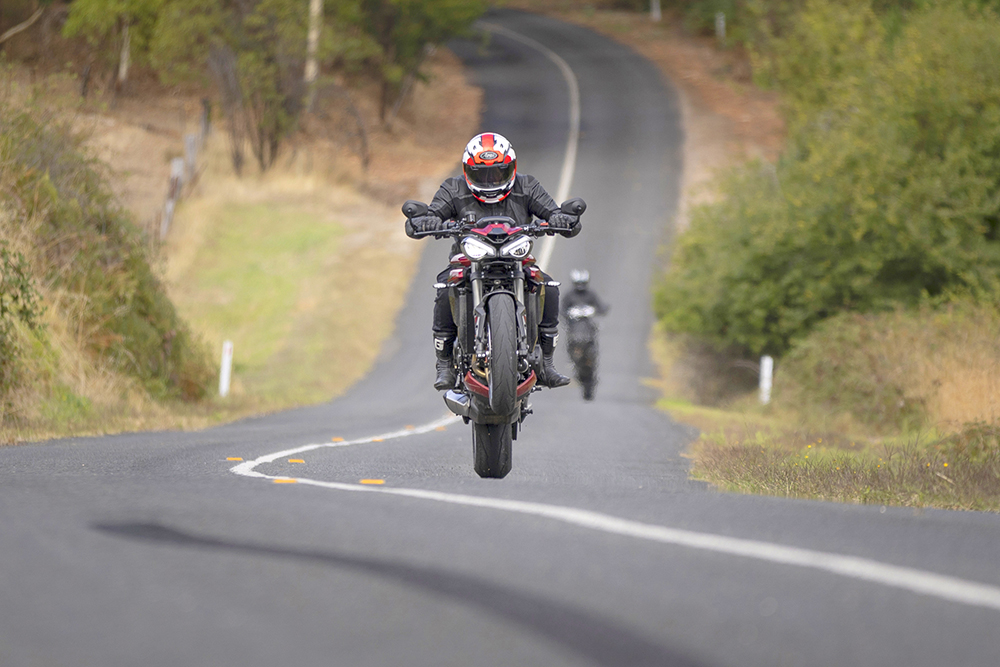
The engine is mated to a slick-shifting six-speed gearbox, and flicking through the ratios is a joy thanks to the super-responsive Shift Assist quickshifter. There’s barely an interruption to ignition on upshifts and the Shift Assist allows for super-fast downshifts, while a slipper clutch ensures there’s no lock up when banging down through the ratios. When you choose to use the clutch, it is light and progressive, and has an adjustable-span lever.
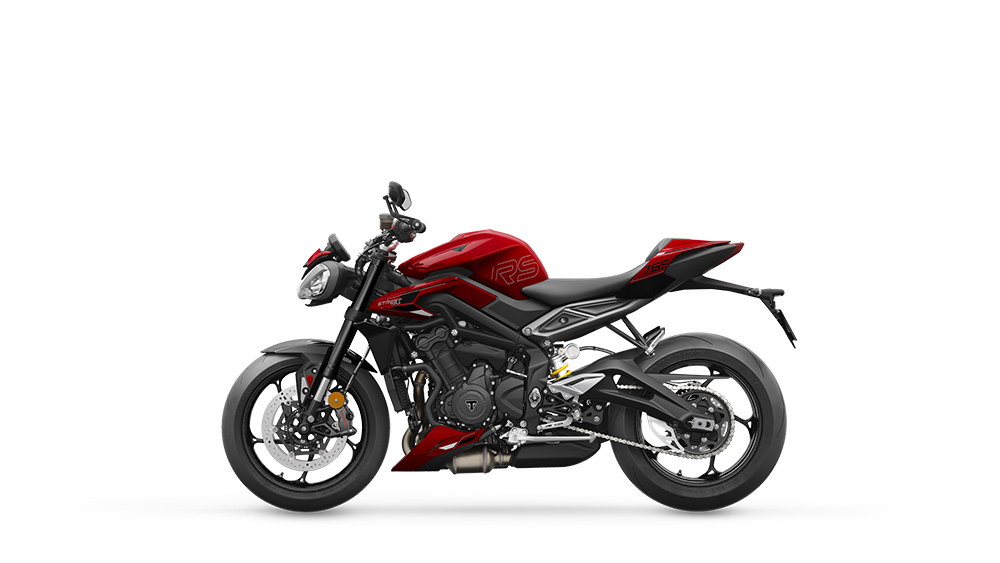
There are five riding modes: Rain, Road, Sport, Track and Rider configurable. The Rain mode dulls throttle response significantly and restricts peak output to just 74kW (99hp), and on the launch ride we had ample opportunity to test it thanks to some wet sections through the Adelaide Hills. While the standard Pirelli Diablo Supercorsa SP V3 tyres offer loads of grip in the dry, they don’t have a helluva lot of tread near the sidewalls for expelling water, and on some slippery sections I could feel the cornering TC doing its thing when exiting bumpy corners. The Road mode gives access to full power but with road-focused settings for throttle response and the intervention from the ABS and TC systems. While there is no more power available in Sport mode, there’s a more aggressive throttle map and less TC intervention. The throttle mapping in Track mode is the same as in Sport mode, but the ABS and TC intervention levels are further reduced. In the Rider configurable mode, you can select between Rain, Road and Sport throttle maps; Road and Track ABS intervention; and Rain, Sport, Track and Off TC intervention. It should be noted that switching the TC off also deactivates the linked braking system.
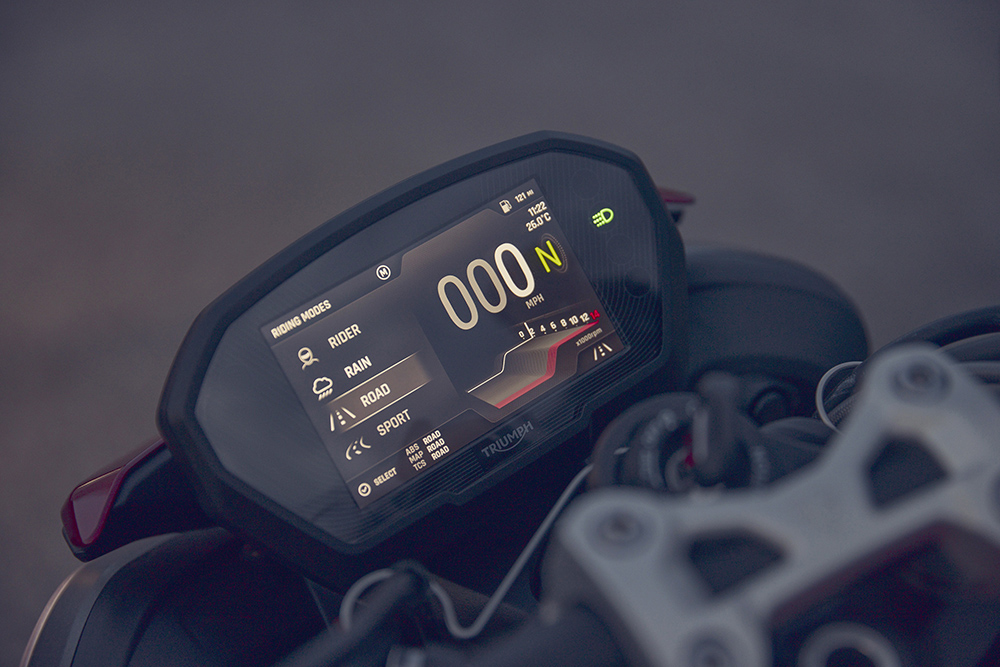
The braking package on the Street Triple RS is simply phenomenal thanks to the top-spec Brembo Stylema setup. Not only is there incredible stopping power from the four-piston radial monobloc front calipers gripping a pair of 310mm ventilated discs, but braking response can also be tailored to suit your preference or the riding environment thanks to the MCS span- and ratio-adjustable lever. For more reactive braking, simply wind up the number on the dial.
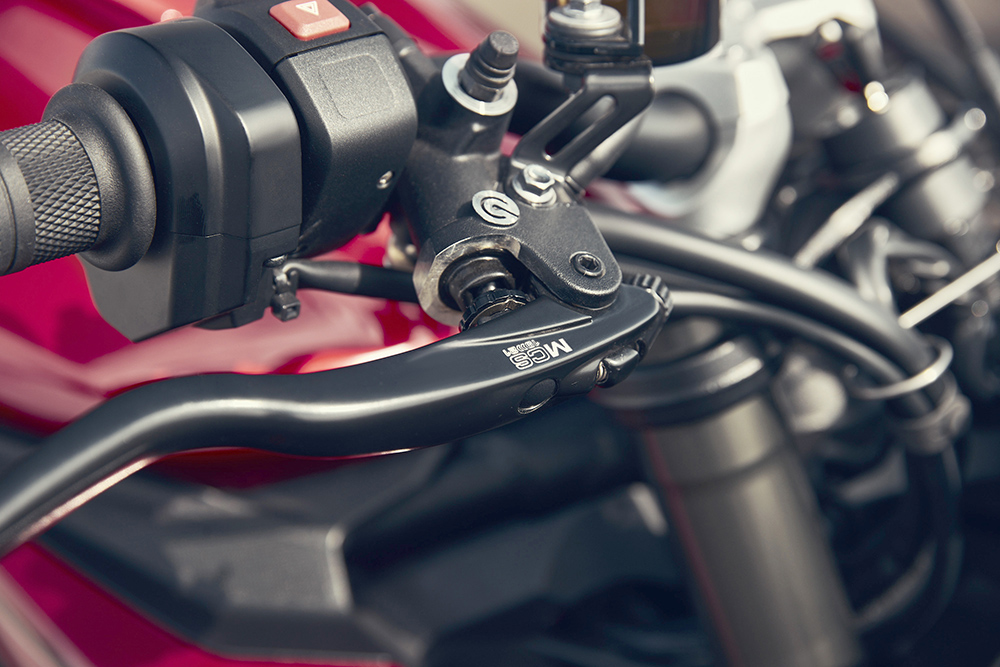
The rear-end runs a 220mm ventilated disc with a single-piston caliper and it offers good feel and control, while the linked-braking setup is barely noticeable when riding, although no doubt adds to braking performance and stability.
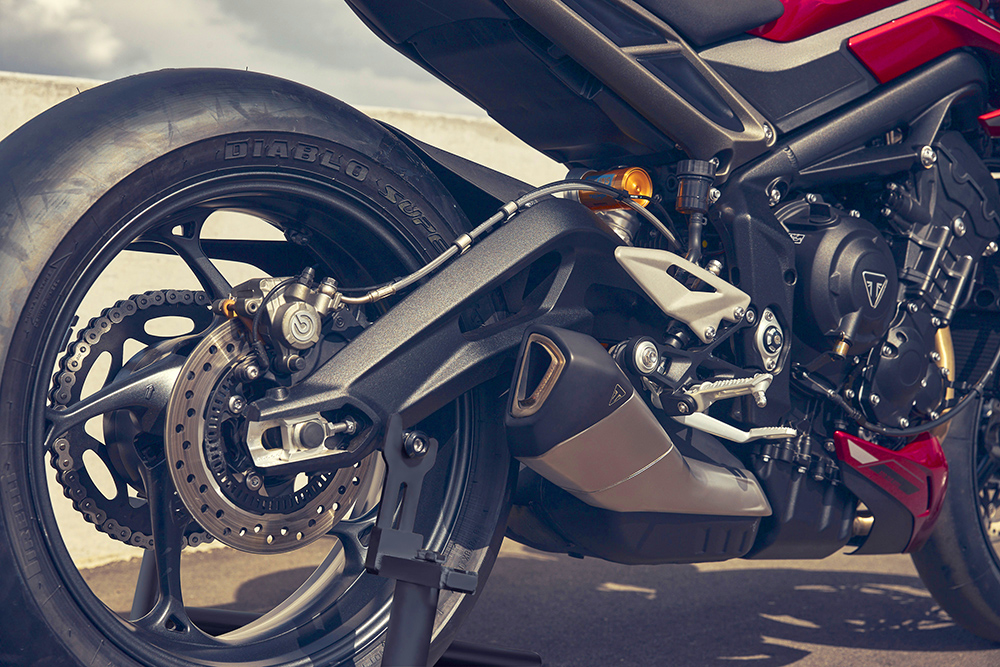
I only felt the ABS intervention on the road on one occasion, when a bloody great big kangaroo came bounding across the road right in front of me; I swear, it dwarfed the Street Triple and I almost needed Bex and a lie down after the close encounter. When I hit the picks to avoid it, the bike pulled up straight and true, and both the ’roo and I continued on our merry way.
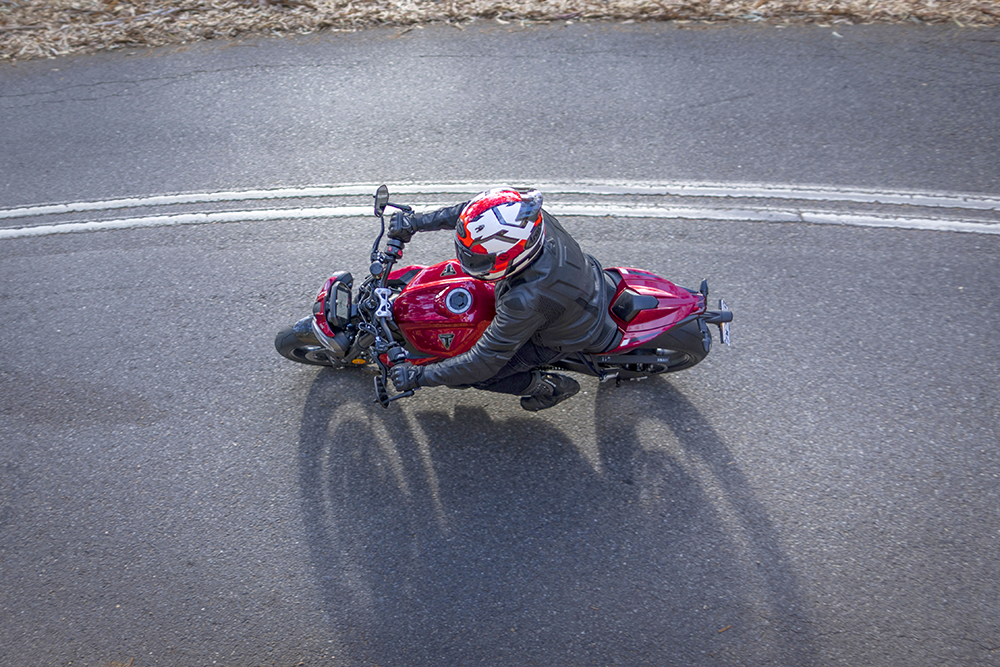
Triumph has tweaked the riding position on the 2023 Street Triple RS to give it a sportier feel. This has been achieved by raising the rear-end of the bike and giving it a steeper rake, so you feel as though you are sitting over the front of the bike more than the previous model. The handlebar width has also been increased by 12mm, resulting in quicker turn-in and making the bike easier to flick from side to side through corners. The fact the Street Triple weighs in at a lithe 188kg wet also helps when it comes to throwing it around through corners.
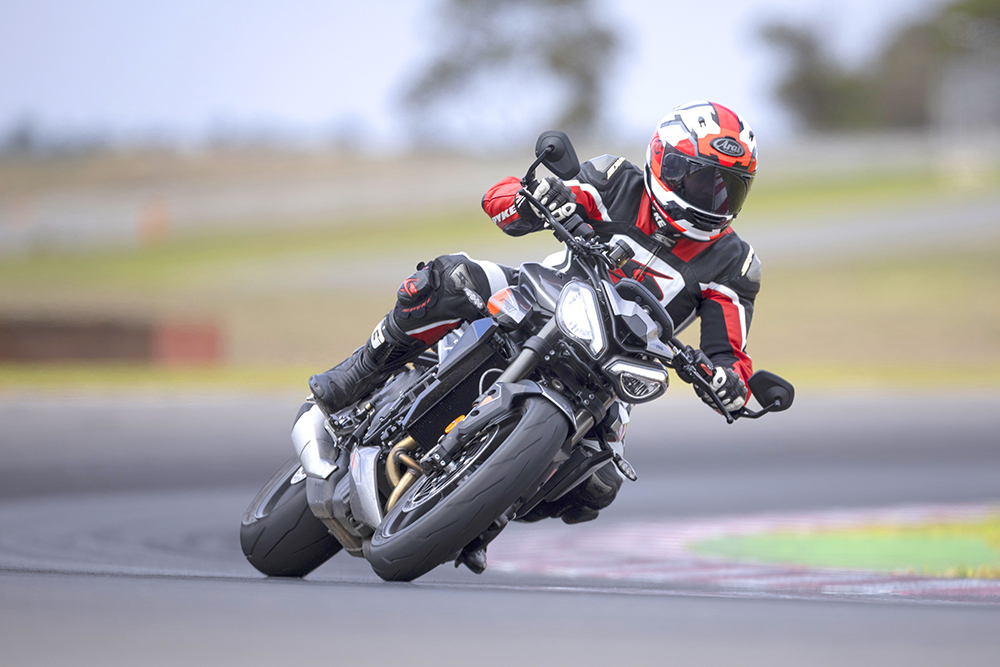
The feel from the front-end is excellent and you can brake late into corners with plenty of confidence; no doubt partially attributable to the excellent Pirelli rubber which offers loads of grip in dry conditions. Once cranked over the RS holds its line nicely, but if you need to make any adjustments just a bit of a push on the wide handlebar is enough to quickly change line.
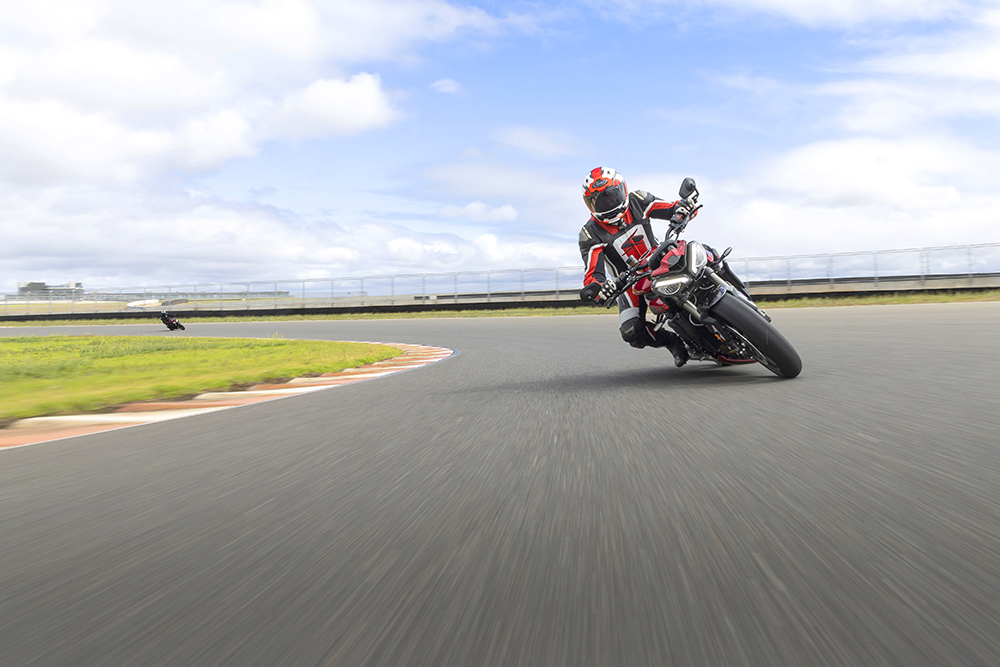
That handlebar is set at a comfortable height for everyday riding, allowing you to sit up and easily see what is going on around you when navigating through traffic. The seat is set quite high, too, at 836mm, and the overall riding position feels quite commanding, giving plenty of control in urban environments and when riding through tight twisties. For shorties, there is an optional low seat that reduces seat height by 28mm to 808mm, while super-shorties can also opt to have an optional suspension linkage fitted to reduce rear-end height by a further 10mm, dropping the low seat to 798mm. I feel that these lowering options could affect the overall lean-forward bias though, and being a bit of a shorty myself I didn’t find the standard seat height problematic. My advice would be to leave it alone.
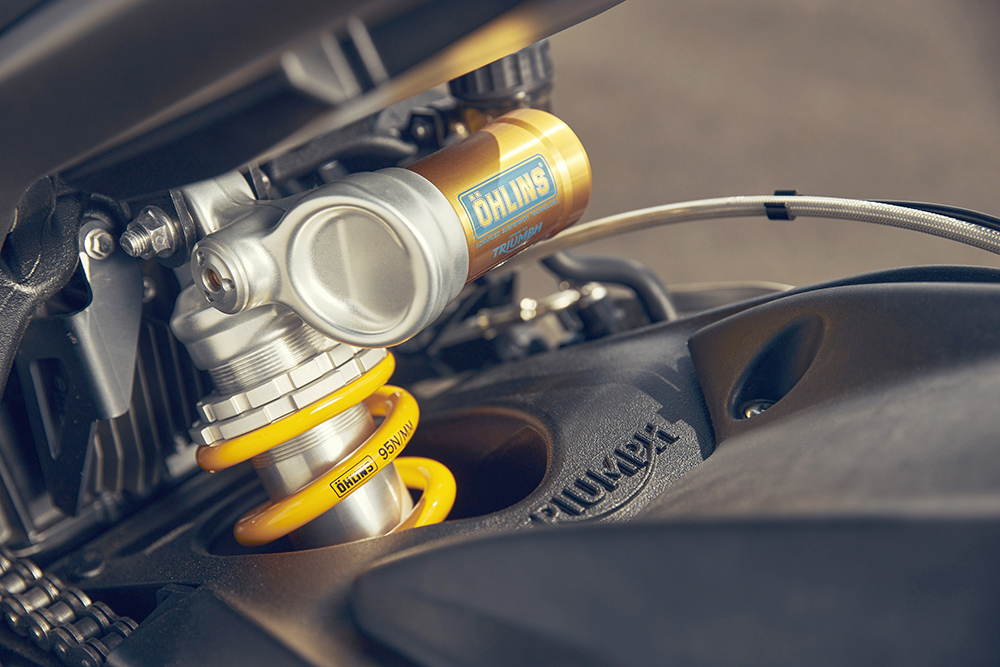
I didn’t play around with the fully adjustable Showa fork; it offered good compliance and control on both the road and track, as did the Öhlins shock out the back. Although reasonably firm, the suspension doesn’t feel at all harsh, even over chopped-up bitumen, of which there was a fair bit on our road ride.
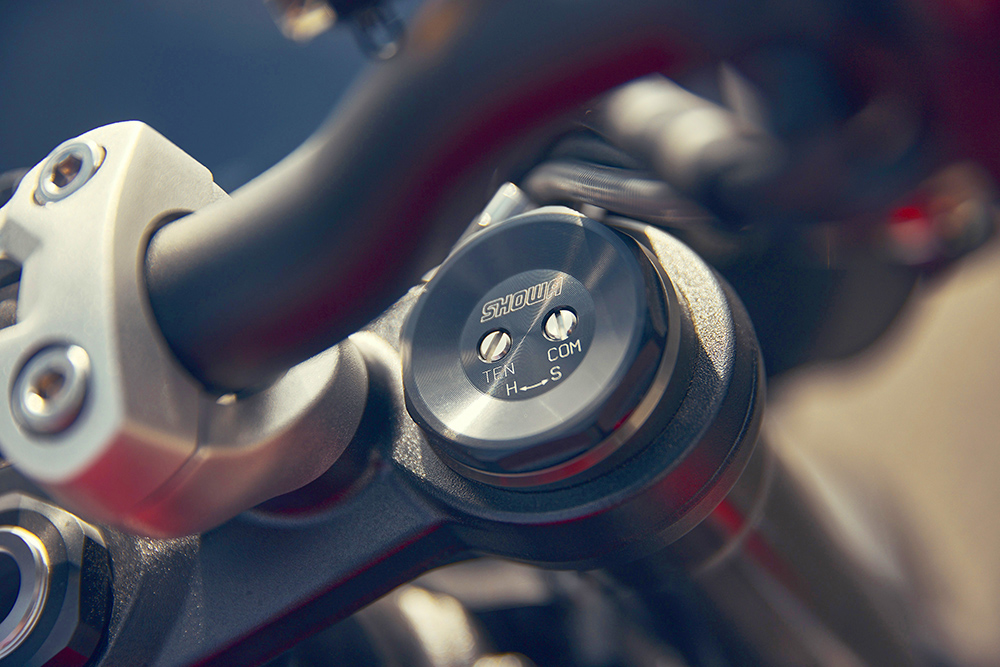
Triumph chose the tight East Circuit at The Bend in South Australia to showcase the performance of the Street Triple on the track, and a better bike/track combination you’d be hard-pressed to find, with a staggering 22 corners littered around the track’s 3.93km length. I used third and fourth for most of the circuit, only dropping to second for the last tight right-hander before the start/finish straight. The standard suspension settings felt fine for the pace I was circulating at, with minimal dive under heavy braking and controlled squat when accelerating out of corners. Some of the faster riders at the launch were keen to add a bit more preload, but when I say faster I mean a lot faster (think Cam Donald and Tom Bramich).
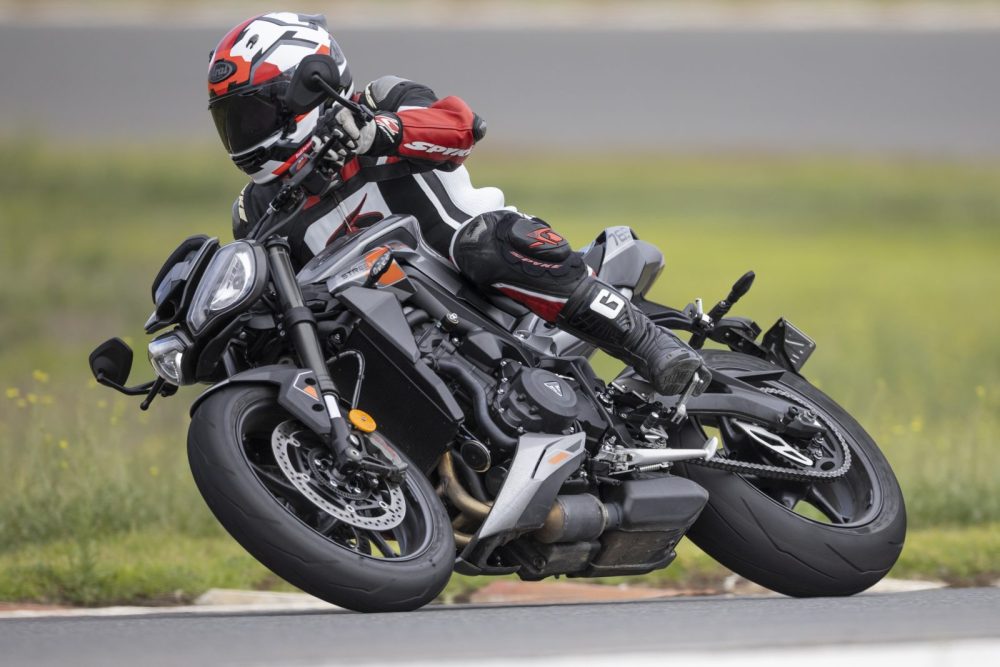
Like most nakeds, there’s not much in the way of wind protection, but unless you’re riding at very high speeds you’re unlikely to find issue with this. If you do get the opportunity to stretch the Street Triple’s legs, hanging on to that wide ’bar with your chin almost resting on the tank can be a bit of a chore. Fortunately, there is a flyscreen in the accessories catalogue and, if you intend to ride on track, I’d highly recommend ticking the options box for it. Personally, I’d also tick the options boxes for cruise control and heated grips and, for those who want even more kit on their RS, there are 50-plus accessories available.
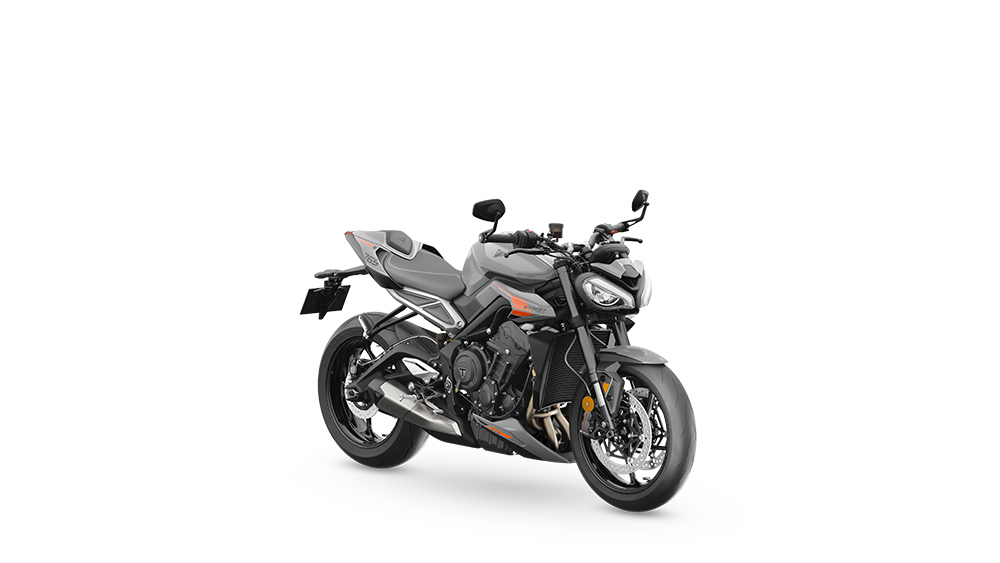
The new full-colour five-inch TFT screen is tailorable but a bit fussy. You can choose from several different displays and, on some of them, the selected ride mode is easy to see while on others it is not. All offer a clear speedometer, however, but some display options have a much clearer tacho readout than others; no doubt owners will eventually settle on a favourite and stick to it. Regardless, the screen is colourful, bright and thoroughly modern, while controls are easy to navigate and use after a bit of familiarisation.
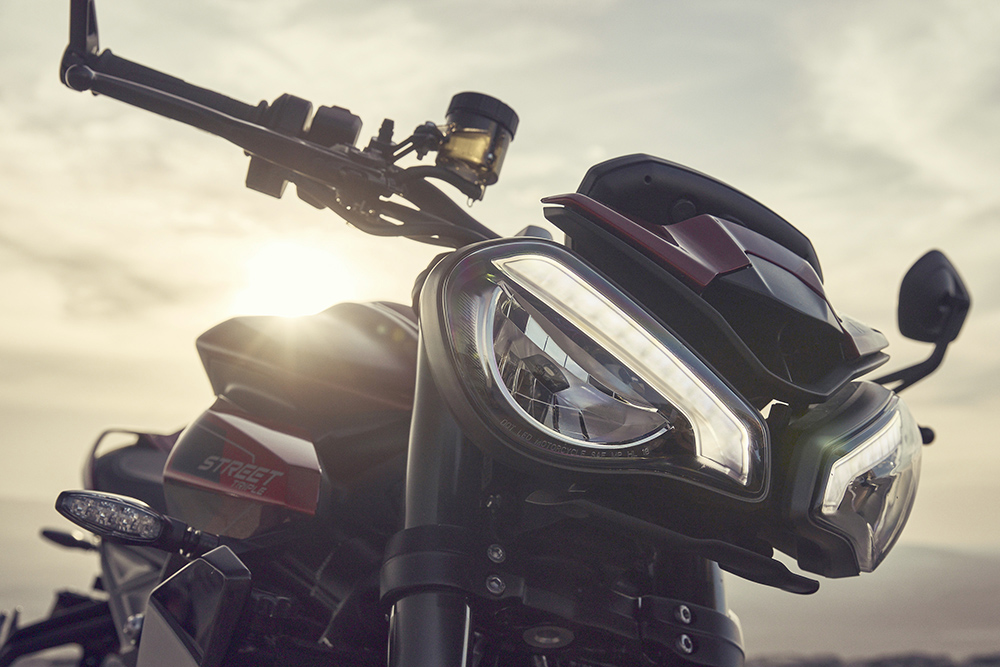
At $20,590 ride away, I reckon the Triumph Street Triple 765 RS is a bargain. It’s loaded with high-tech electronics and high-end hardware, so you would expect it to be something quite special, but it somehow manages to be even more than just the sum of its parts. As well as doing all the stuff you’d expect of a quality midsize nakedbike, it goes about it in such a way that it’s exciting to ride every time you climb aboard, whether you’re just weaving through traffic, blatting around the backroads or fanging it on the track. It looks like we’re going to have to line up a midsize nakedbike shootout as soon as we can. And I can’t wait.
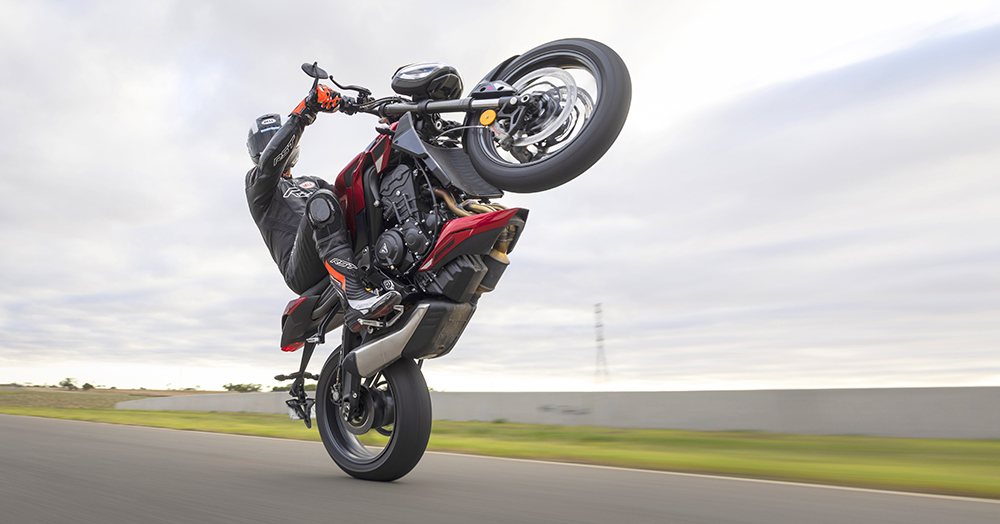
Test Dean Mellor + Photography Dean Walters
